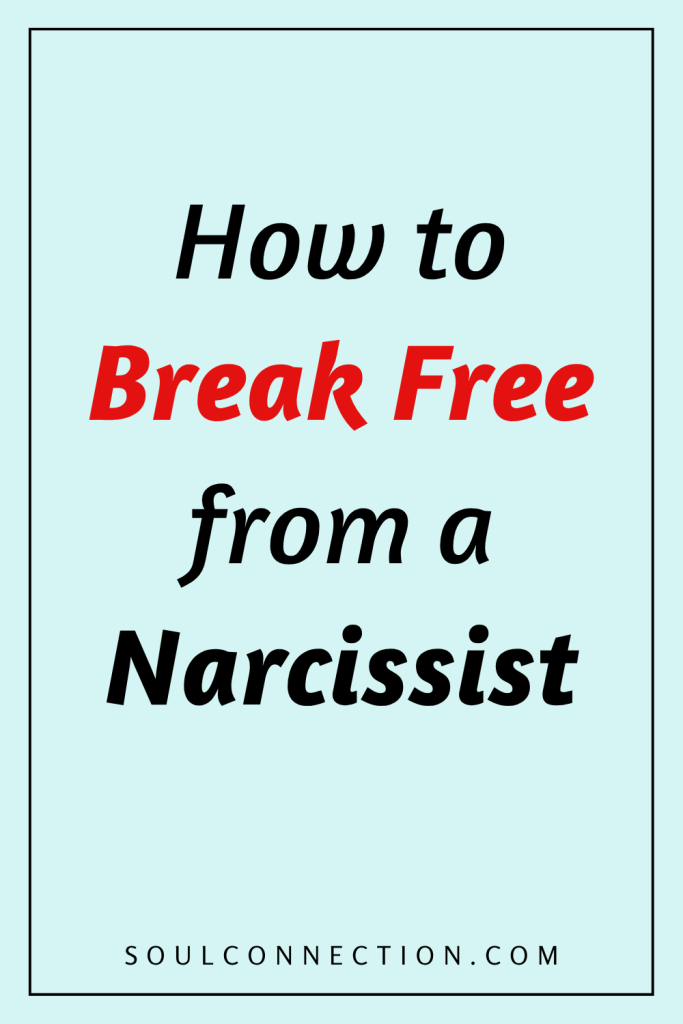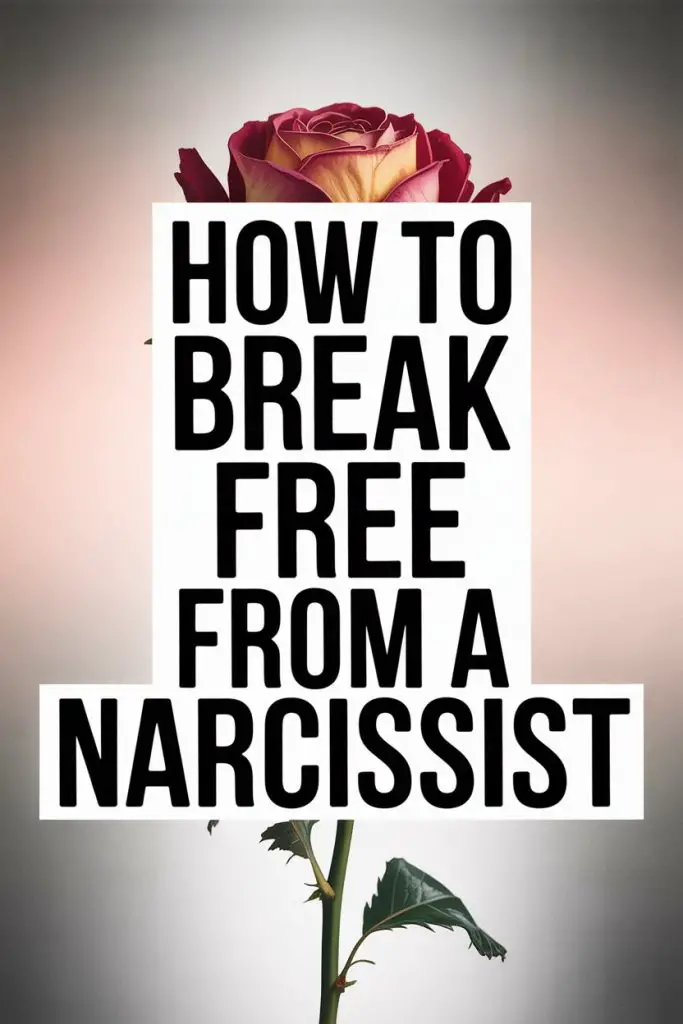Leaving a narcissist isn’t something anyone adds to their five-year plan. It’s more like realizing you’ve been living in a funhouse mirror—except the only one laughing is the narcissist.
Fortunately, freedom is a lot closer than it feels (even if it currently feels about as close as the moon). Let’s get to the nitty-gritty of what it really takes to get out—and get your life back.
Spotting the Narcissist’s Tricks
Before plotting an escape, it helps to know what you’re dealing with. Narcissists don’t wear name tags, but their bag of tricks is pretty recognizable once you’ve seen it.
Love bombing, ghosting, gaslighting, playing the victim—if there were Olympic medals for manipulation, they’d be on a cereal box.
What you’re feeling isn’t “just you.” It’s not your imagination. If you’re constantly doubting reality, apologizing for things you didn’t do, or feeling like you’re always walking on eggshells, that’s the handiwork of a narcissist.
Noticing these patterns is the first step to breaking the spell (and trust me, it is a spell).
Why It’s So Hard to Leave a Narcissist
If leaving a narcissist were easy, relationship therapists would be out of business.
Narcissists are master illusionists—one minute they’re Prince Charming, the next they’re a Bond villain, then back again before you can finish your flat white. The push-pull cycle creates an addictive emotional rollercoaster.
There’s also the matter of self-doubt. Years of gaslighting can convince anyone that they’re overreacting, too sensitive, or unlovable.
That narrative isn’t yours—it was planted there, watered, and fertilized by someone who profits from your confusion. Recognising this is half the battle.
Creating Your Support Squad
No one gets out of a narcissistic relationship single-handedly. Odds are, your narcissist has worked overtime to isolate you—friends drift away, family stops calling, and suddenly you’re the last person picked for the metaphorical dodgeball team.
Time to build your own Avengers. Reach out to friends and family you trust, even if the narcissist has tried to turn you against them. A therapist worth their salt can be a game-changer, too.
Online support groups brim with people who’ve been where you are, which might be both depressing (so many narcissists!) and encouraging (so many survivors!). You don’t have to do this solo.
Planning Your Exit Without the Drama
Announcing you’re leaving a narcissist is a bit like poking a hornet’s nest with a selfie stick. The less warning they get, the better for your sanity (and safety). Quietly and thoroughly plan your departure.
Start by gathering important documents: birth certificates, passports, legal papers, evidence of abuse. Change passwords on your phone, social media, and email.
Set aside cash or open your own bank account if you don’t already have one. The goal isn’t “drama-free” (that ship sailed when you met them), but “minimize the fireworks.”
The Gray Rock Method
Ever tried to argue with a narcissist? It’s like playing chess with a pigeon—it knocks the pieces over, poops on the board, and struts around like it won. Instead, give them nothing to work with.
The “gray rock” method is about being as boring and unresponsive as, well, a rock.
Don’t share your feelings, plans, or opinions. Respond to provocations with monotone, noncommittal answers. Narcissists thrive on drama and attention; take that away and suddenly they’re bored.
It’s not glamorous, but it helps avoid feeding their ego (or their rage).
Cutting Contact (or Going Low-Contact If You Can’t)
Nothing wounds a narcissist’s pride like being ignored. If possible, block their number, unfriend them, and set every privacy lock you can find.
No “just checking in” texts, no responding to guilt trips, and definitely no giving in to “just one coffee to talk things over.”
If you have kids or shared commitments, going entirely no-contact might not be an option. In that case, keep communication strictly about logistics and as brief as possible.
They want a reaction; they get none. Save the drama for a telenovela.
Rebuilding Your Self-Esteem
Emerging from a narcissistic relationship, most people’s self-worth resembles a soggy cardboard box. Rebuilding takes time—and a deliberate effort.
Start by reminding yourself of your own reality. Journaling, therapy, affirmations (even if they feel cheesy), and reconnecting with your own interests help remind you who you were before you got sucked into the narcissist’s orbit.
Surround yourself with people who see your worth and are delighted you exist. If you forgot what that feels like, you’re not alone.
Accept compliments without arguing. Take up hobbies that have nothing to do with impressing anyone. Little by little, your confidence will sneak back in.
Managing the Narcissist’s Hoovering
Just when you think you’re out, the narcissist slides into your DMs at 2am with, “Hey, just thinking about you.” Or they show up at your work, post cryptic memes on social media, or suddenly become best friends with your new partner’s cousin’s dog.
This is called “hoovering,” and it’s as subtle as a brick through a window.
Narcissists can’t stand not being the center of your universe, so they’ll try to suck you back in. The best response? No response. Every reply is a potential new foothold
. If you must reply (kids, shared bills, etc.), stick to facts and ignore any emotional bait. Their persistence is impressive, but you’ve got boundaries now.
Dealing with the Fallout
Leaving a narcissist isn’t a one-and-done operation. There might be mutual friends who take sides, family members who don’t get it, or even smear campaigns where suddenly you’re the villain in their story.
Tempting as it is to broadcast your side far and wide, keeping your dignity (and your receipts) is more effective.
People who matter will see the truth over time. Anyone who believes the narcissist’s version without question probably wasn’t in your corner anyway. Focus on what you can control—your own peace, your own healing.
Rediscovering What You Want
Narcissists are experts at making everything about themselves. Once you’re free, the question becomes: what do you actually want? This can feel both exhilarating and terrifying. Maybe you haven’t made a decision just for yourself in years.
Give yourself permission to be selfish—in the healthy sense. Try new things, meet new people, say no just because you can. The world isn’t going to end if you put yourself first for a while. It might just become a nicer place, actually.
Why Healing Isn’t Linear
One day you’re blasting Beyoncé, convinced you’re unstoppable. The next, you’re crying over old texts and wondering if you made it all up.
Healing after narcissistic abuse is messier than a toddler birthday party—progress doesn’t move in a straight line.
Setbacks happen: that doesn’t mean you’re failing. It means you’re human. Keep reaching out for support, keep reminding yourself what’s real, and keep moving forward—one slightly wobbly step at a time.
The Freedom on the Other Side
Life after a narcissist is a little like waking from a nightmare—everything feels sharper, lighter, and a bit surreal. Old hobbies have flavor again.
Laughter comes easier, and the peace and quiet (narcissists are very, very loud) is pure bliss.
There’s no magic formula to breaking free, but persistence pays off. Every boundary you set, every time you refuse to answer their call, every time you put yourself first, you’re laying another brick in the foundation of your new life.
Anyone who’s broken free will tell you: the grass really is greener—mostly because you’re finally allowed to water it.
Welcome back to yourself. It’s good to have you.


